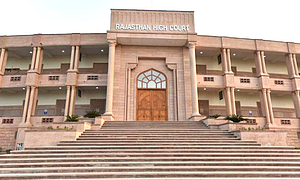Delhi: The capital city experienced its warmest Republic Day in eight years, with maximum temperatures reaching 23.7 degrees Celsius, two degrees above normal, as per the India Meteorological Department (IMD).
In comparison, the maximum temperature noted on January 26 in 2017 was 26.1 degrees Celsius. Forecasts predict misty conditions for Monday, with temperatures expected to peak at 23 degrees Celsius and drop to a minimum of around 8 degrees Celsius.
Historically, temperatures on January 26 have shown considerable variation. The long-period average (LPA) max since 1991 is 22.1 degrees Celsius, but recent years have been cooler, with temperatures of 20.6 degrees Celsius in 2024, 17.3 degrees Celsius in 2023, and 16.4 degrees Celsius in 2022.
The IMD explained that clear skies and dry northwesterly winds are responsible for the warmer conditions. "Despite a recent western disturbance bringing some rain and snow to parts of northwest India, the maximum temperature in Delhi has remained relatively unaffected due to bright daytime sunshine," PTI quoted as saying vice president of private weather monitoring agency Skymet, Mahesh Palawat.
"The disturbance will shift wind patterns, reduce wind speeds and bring cloud cover, which will trap heat at night and cause night temperatures to rise," said Palawat according to report by PTI.
Nonetheless, these weather conditions have contributed to lower night temperatures, with Sunday recording a minimum of 7.2 degrees Celsius, slightly below normal. A fresh western disturbance set to arrive by January 28 may increase both maximum and minimum temperatures, potentially raising minimums to 9-11 degrees Celsius and maximums to 24-26 degrees Celsius by the weekend. Meanwhile, Delhi's Air Quality Index (AQI) has dropped into the 'poor' category, and further deterioration is anticipated.










